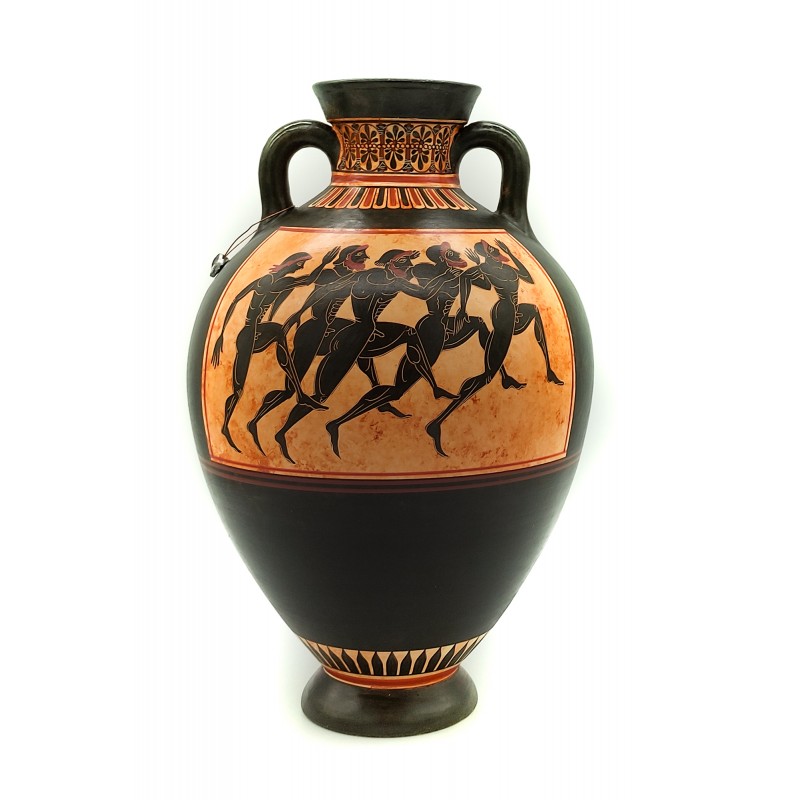The Olympic Games is undoubtedly the most famous sports festival of ancient Greece. Similarly, the Iliad is the most famous work of literature from that nation. However, while both of them are well known individually, what is not so well known is the connection they have with each other. How did the ancient Olympic Games set the stage for Homer’s Iliad?
Panhellenism in Homer’s Iliad
For most of Greece’s ancient history, the country was divided into countless city-states. These city-states were each composed primarily of a city and the surrounding territory, including any small settlements or villages within that territory.
Occasionally, some city-states dominated others. However, fundamentally, Greece was fragmented into numerous independent entities until its eventual unification under Alexander the Great.
Nevertheless, as early as Homer’s Iliad, we see the word panhellenes. This refers to the Greeks as a whole, incorporating all the Greek city-states, settlements, and tribes. In fact, in various places, Homer hints at the concept of the Greeks as a united entity.
The very fact that the entire Greek alliance is led by a single king, Agamemnon of Argos, is one example of this. Homer’s repeated use of just single words, such as “Danaans” or “Hellenes,” to refer to the Greeks as a whole is also indicative of this sense of a collective identity.
How are these details from the Iliad related to the Olympic Games? These actually are relevant to when the Greeks first began developing a sense of collective identity. As we see, the nation was originally divided into countless independent city-states. At what point, then, did they begin viewing themselves as one people?
There is no evidence that the ancient Greeks had a sense of collective identity in the Mycenaean Era, the Bronze Age. What is true is that there was likely one king who was particularly powerful. We see indications of this in Hittite letters that speak of the Ahhiyawa, or Achaeans.
Nevertheless, there is no clear evidence that this meant that the Greeks as a whole viewed themselves as one nation. They might have done so, but we simply do not have any evidence for this.
After the Bronze Age, the Greeks entered the Dark Ages. It appears that a sense of collective identity definitely began emerging towards the end of that era. What exactly happened?
The Olympic Games
Scholars generally place the end of the Greek Dark Ages around the year 750 BCE. The traditional date of the first Olympic Games is 776 BCE, not long at all before the end of the Dark Ages. What was so special about the Olympic Games, and what has this got to do with the Iliad?
It is very unlikely that the Olympic Games was the very first sports festival in the ancient Greek world. However, what makes it stand out among others that may have existed before it is that it was a festival for all the Greeks, and only the Greeks. In other words, it provides clear evidence that the Greeks had already formed a sense of collective identity by 776 BCE.
The eighth century BCE also saw the emergence of several other festivals and sanctuaries which were closed off to non-Greeks. For instance, the Panhellenic Temple of Apollo, where the Oracle of Delphi was located, was also founded in that century.
Certainly, the Olympic Games is the single most prominent example of early evidence for a Greek collective identity. It is also likely the very earliest piece of evidence for this. This concept of Panhellenism, which was inevitably further motivated by the Olympic Games, had become firmly established by the time Homer wrote the Iliad around the year 650 BCE.
Caleb Howells
Εστάλη στην ΟΔΥΣΣΕΙΑ, 25/7/2024 #ODUSSEIA #ODYSSEIA, Greek reporter

